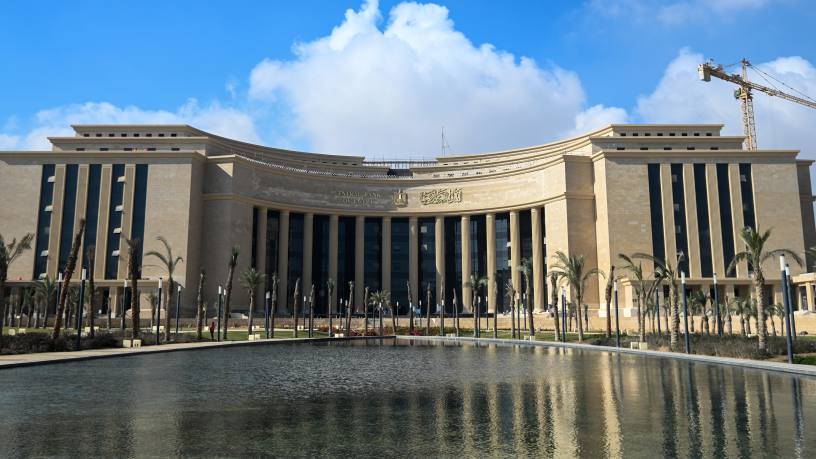Egypt Secures $35 Billion Abu Dhabi Investment Amid IMF Loan and Economic Reforms
In a pivotal development that may signify a turning point in Egypt’s economic turmoil, Abu Dhabi has committed $35 billion to the coastal Ras al-Hekma project, potentially followed by Saudi investments. This landmark investment addresses concerns over Egypt’s dwindling foreign currency reserves and alleviates fears of a sovereign default.
The Emirati funds, whose initial tranche has been received, empowered the Central Bank of Egypt (CBE) to hike interest rates by an unprecedented 600 basis points last Wednesday. This bold move aimed at combating the country’s soaring inflation rates. Additionally, the devaluation of the Egyptian pound by 40%—the most substantial in a decade—has boosted foreign investor confidence.
On the same day, the International Monetary Fund (IMF) extended an $8 billion loan to Egypt, contingent on promises to curb fiscal excesses and adopt an inflation-targeting monetary policy and foreign exchange regime.
Simon Williams, chief economist for Central and Eastern Europe, the Middle East, and Africa at HSBC, remarked, "The likelihood of those pledges being met has been boosted by the upscaling of Egypt’s IMF programme from $3 billion to $8 billion—a sum that not only incentivises policy discipline but, when combined with the Ras al-Hekma deal, further enhances Egypt’s capacity to manage change."
Egypt’s economic landscape has seen immediate positive shifts following these agreements. Moody’s Ratings, which had downgraded Egypt’s outlook to "negative" two months prior, upgraded it to "positive" on March 7, citing a "marked change in economic policy… that, if maintained, will help Egypt sustain an upsized IMF program, reduce the risk of renewed external imbalances, and strengthen the economy’s resilience."
Despite these promising developments, concerns linger over Egypt’s commitment to the IMF-stipulated reforms, particularly the shift to a free-floating currency and a reduction in spending on overextended megaprojects.
Timothy Kaldas, Deputy Director of the Tahrir Institute for Middle East Policy, voiced caution: "There’s a real risk that Egypt’s leadership will see these deals as confirmation that the country is too big to fail and will receive bailouts regardless. Without significant changes in economic governance, the government could soon find itself in another crisis."
Tackling Economic Turmoil
Egypt’s economy has weathered numerous external shocks over the past few years. The Covid-19 pandemic slashed tourism revenue, which constituted 8.8% of GDP in 2019, by 55% in 2020. Subsequent grain price surges due to Russia’s invasion of Ukraine further strained the economy. More recently, revenues from tourism and the Suez Canal halved due to maritime attacks by Yemen’s Houthis in the Red Sea and the ongoing conflict in Gaza.
However, domestic mismanagement has exacerbated these challenges. Over-reliance on short-term capital inflows was painfully exposed by rapid outflows following the Ukraine invasion. Inflation peaked at 37.9% last September, later dipping to 35.1% in February. Despite raising interest rates from 8.25% to 19.25% over 24 months, the CBE struggled with inflation and forex issues.
Furthermore, Egypt’s overdependence on government spending—often on controversial projects like the New Administrative Capital and Suez Canal expansion—and gas exports has stymied sustainable growth. The military’s expanding economic role has further inhibited private sector development and deterred foreign investment.
Yezid Sayigh, a senior fellow at the Malcolm H. Kerr Carnegie Middle East Center, discussed the government’s conflict of interest: "[The government’s] policy framework leaves an irreconcilable gap between its declared goal of leveling the economic playing field with the private sector and the reality of the military’s economic role."
An Unexpected Financial Lifeline
The announcement of Abu Dhabi’s $35 billion investment in Ras al-Hekma (a 170 sq. km coastal zone) on February 23, amid ongoing negotiations for a fifth IMF loan, arrived as a financial lifeline for Egypt. Abu Dhabi’s sovereign wealth fund, ADQ—which has invested $3.6 billion in UAE assets since 2022—will fund $35 billion into the project, with $15 billion already transacted.
Prime Minister Mostafa Madbouly anticipates the project will attract over $150 billion in foreign direct investment throughout its duration. Discussions with Saudi Arabia concerning another coastal project, Ras Gamila, are reportedly underway.
The announcement swiftly bolstered investor confidence: sovereign dollar bond spreads narrowed to their lowest in nearly three years, and black-market forex rates fell dramatically.
The IMF lauded Egypt’s "decisive steps" towards a credible flexible exchange rate regime, highlighting committed reforms including monetary and fiscal policy tightening, reduced infrastructure spending, and private sector growth promotion.
Yet, skepticism persists. Emerging markets strategist Gergely Ürmössy of Société Générale notes, "The expansion of the IMF program indicates the fund’s confidence in Egypt’s macro outlook, but the total package remaining below $10 billion reflects caution on actual reform delivery."
Despite these challenges, a revitalized IMF agreement is seen as mutually beneficial. James Swanston of Capital Economics emphasized Egypt’s strategic importance to the IMF, given its geopolitical relevance, underlining that IMF-backed reforms bolster investor confidence.
Hisham Ezz Al-Arab, Commercial International Bank’s non-executive chairman, reinforced this view: "The Ras al-Hekma deal comforts existing bondholders, but the IMF agreement is a global endorsement."
Future Economic Directions
While the devaluation meets initial IMF demands, doubts linger about the CBE’s commitment to a full market-determined exchange rate. Although the pound fell from E£30.90 to E£49.10 per dollar post-devaluation, suspicions arise around the bank’s continued influence in forex markets.
Critical to future success is fiscal discipline. "Reducing the budget deficit and public debt is imperative before prioritizing major projects," advised Ezz Al-Arab. Past initiatives like the New Administrative Capital have amassed debt, impacting the nation’s fiscal stability.
The Institute of International Finance remains hopeful: "Learning from past mistakes, Egypt must leverage this opportunity, continuing with IMF-backed reforms for economic stability, reserve buffer restoration, a market-driven exchange rate, and private-sector-led growth."
Source: The Banker
